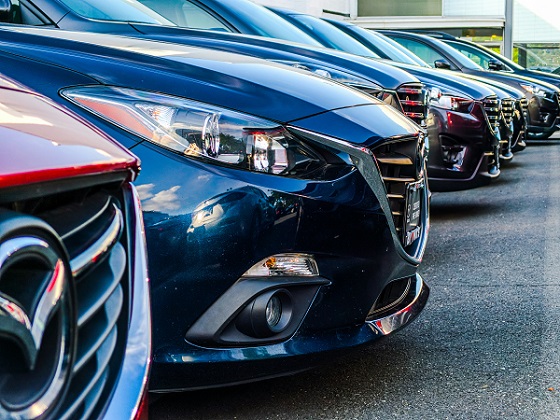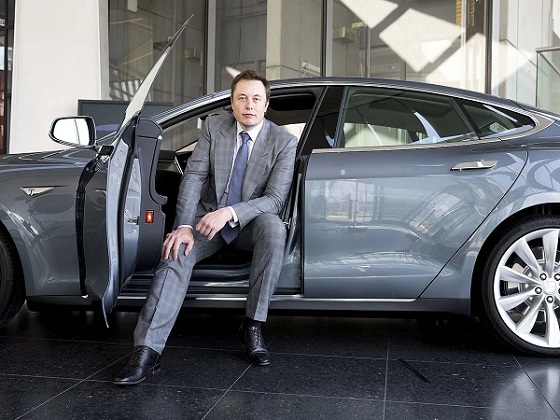Automotive
Trump warns U.S. automakers: Do not raise prices in response to tariffs

 MxM News
MxM News
Quick Hit:
Former President Donald Trump warned automakers not to raise car prices in response to newly imposed tariffs, arguing that the move would ultimately benefit the industry by strengthening American manufacturing. However, automakers are signaling that price increases may be unavoidable.
Key Details:
- Trump told auto executives on a recent call that his administration would look unfavorably on price hikes due to tariffs.
- A 25% tariff on imported vehicles and parts is set to take effect on April 2, likely driving up costs for U.S. automakers.
- Industry analysts predict vehicle prices could rise 11% to 12% in response, despite Trump’s insistence that tariffs will benefit American manufacturing.
Diving Deeper:
In a conference call with leading automakers earlier this month, former President Donald Trump issued a stern warning: do not use his new tariffs as an excuse to raise car prices. While Trump presented the tariffs as a boon for American manufacturing, industry leaders remain unconvinced, arguing that the financial burden will inevitably lead to higher costs for consumers.
Trump’s administration is pressing ahead with a 25% tariff on all imported vehicles and parts, set to take effect on April 2. The move is aimed at reshaping trade dynamics in the auto industry, encouraging domestic manufacturing, and reversing what Trump calls the damaging effects of President Joe Biden’s electric vehicle mandates. Despite this, automakers say that rising costs on foreign parts—which many depend on—will leave them little choice but to pass expenses onto consumers.
“You’re going to see prices going down, but going to go down specifically because they’re going to buy what we’re doing, incentivizing companies to—and even countries—companies to come into America,” Trump stated at a recent event, reinforcing his stance that the tariffs will ultimately lower costs in the long run.
However, industry insiders are pushing back, warning that a rapid shift to domestic production is unrealistic. “Tariffs, at any level, cannot be offset or absorbed,” said Ray Scott, CEO of Lear, a major automotive parts supplier. His concern reflects broader anxieties within the industry, as automakers calculate the financial strain of the tariffs. Analysts at Morgan Stanley estimate that vehicle prices could increase between 11% and 12% in the coming months as the new tariffs take effect.
Automakers have been bracing for the fallout. Detroit’s major manufacturers and industry suppliers have voiced their concerns, emphasizing that transitioning supply chains and manufacturing operations back to the U.S. will take years. Meanwhile, auto retailers have stocked up on inventory, temporarily shielding consumers from price hikes. But once that supply runs low—likely by May—the full impact of the tariffs could hit.
Within the Trump administration, inflation remains a pressing concern, though Trump himself rarely discusses it publicly. His economic team is aware of the potential for tariffs to drive up costs, yet the administration’s stance remains firm: automakers must adapt without raising prices. It remains unclear, however, what actions Trump might take should automakers defy his warning.
The auto industry isn’t alone in its concerns. Executives across multiple sectors, from oil and gas to food manufacturing, have been lobbying against major tariffs, arguing that they will inevitably result in higher prices for American consumers. While Trump has largely dismissed these warnings, some analysts suggest that public dissatisfaction with rising costs played a key role in shaping the outcome of the 2024 election.
With the tariffs set to take effect in just weeks, automakers are left grappling with a difficult reality: absorb billions in new costs or risk the ire of a White House determined to remake America’s trade policies.
Automotive
Auto giant shuts down foreign plants as Trump moves to protect U.S. industry

 MxM News
MxM News
Quick Hit:
Stellantis is pausing vehicle production at two North American facilities—one in Canada and another in Mexico—following President Donald Trump’s announcement of 25% tariffs on foreign-made cars. The move marks one of the first corporate responses to the administration’s push to bring back American manufacturing.
Key Details:
-
In an email to workers Thursday, Stellantis North America chief Antonio Filosa directly tied the production pause to the new tariffs, writing that the company is “continuing to assess the medium- and long-term effects” but is “temporarily pausing production” at select assembly plants outside the U.S.
-
Production at the Windsor Assembly Plant in Ontario will be paused for two weeks, while the Toluca Assembly Plant in Mexico will be offline for the entire month of April.
-
These plants produce the Chrysler Pacifica minivan, the new Dodge Charger Daytona EV, the Jeep Compass SUV, and the Jeep Wagoneer S EV.
Diving Deeper:
On Wednesday afternoon in the White House Rose Garden, President Trump announced sweeping new tariffs aimed at revitalizing America’s auto manufacturing industry. The 25% tariffs on all imported cars are part of a broader “reciprocal tariffs” strategy, which Trump described as ending decades of globalist trade policies that hollowed out U.S. industry.
Just a day later, Stellantis became the first major automaker to act on the new policy, halting production at two of its international plants. According to an internal email obtained by CNBC, Stellantis North American COO Antonio Filosa said the company is “taking immediate actions” to respond to the tariff policy while continuing to evaluate the broader impact.
“These actions will impact some employees at several of our U.S. powertrain and stamping facilities that support those operations,” Filosa wrote.
The Windsor, Ontario plant, which builds the Chrysler Pacifica and the newly introduced Dodge Charger Daytona EV, will shut down for two weeks. The Toluca facility in Mexico, responsible for the Jeep Compass and Jeep Wagoneer S EV, will suspend operations for the entire month of April.
The move comes as Stellantis continues to face scrutiny for its reliance on low-wage labor in foreign markets. As reported by Breitbart News, the company has spent years shifting production and engineering jobs to countries like Brazil, India, Morocco, and Mexico—often at the expense of American workers. Last year alone, Stellantis cut around 400 U.S.-based engineering positions while ramping up operations overseas.
Meanwhile, General Motors appears to be responding differently. According to Reuters, GM told employees in a webcast Thursday that it will increase production of light-duty trucks at its Fort Wayne, Indiana plant—where it builds the Chevrolet Silverado and GMC Sierra. These models are also assembled in Mexico and Canada, but GM’s decision suggests a shift in production to the U.S. could be underway in light of the tariffs.
As Trump’s trade reset takes effect, more automakers are expected to recalibrate their production strategies—potentially signaling a long-awaited shift away from offshoring and toward rebuilding American industry.
2025 Federal Election
Don’t let the Liberals fool you on electric cars

 Dan McTeague
Dan McTeague
“The Liberals, hoodwinked by the ideological (and false) narrative that EVs are better for the environment, want to force you to replace the car or truck you love with one you can’t afford which doesn’t do what you need it to do.”
The Liberals’ carbon tax ploy is utterly shameless. For years they’ve been telling us that the Carbon Tax was a hallmark of Canadian patriotism, that it was the best way to save the planet, that it was really a “price on pollution,” which would ultimately benefit the little guy, in the form of a rebate in which Canadians would get back all the money they paid in, and more!
Meanwhile big, faceless Captain Planet villain corporations — who are out there wrecking the planet for the sheer fun of it! — will shoulder the whole burden.
But then, as people started to feel the hit to their wallets and polling on the topic fell off a cliff, the Liberals’ newly anointed leader — the environmentalist fanatic Mark Carney — threw himself a Trumpian signing ceremony, at which he and the party (at least rhetorically) kicked the carbon tax to the curb and started patting themselves on the back for saving Canada from the foul beast. “Don’t ask where it came from,” they seem to be saying. “The point is, it’s gone.”
Of course, it’s not. The Consumer Carbon Tax has been zeroed out, at least for the moment, not repealed. Meanwhile, the Industrial Carbon Tax, on business and industry, is not only being left in place, it’s being talked up in exactly the same terms as the Consumer Tax was.
No matter that it will continue to go up at the same rate as the Consumer Tax would have, such that it will be indistinguishable from the Consumer Tax by 2030. And no matter that the burden of that tax will ultimately be passed down to working Canadians in the form of higher prices.
Of course, when that happens, Carney & Co will probably blame Donald Trump, rather than their own crooked tax regime.
Yes, it is shameless. But it also puts Pierre Poilievre and the Conservatives in a bind. They’ve been proclaiming their intention to “Axe the Tax” for quite some time now. On the energy file, it was pretty much all you could get them to talk about. So much so that I was worried that upon entering government, they might just go after the low hanging fruit, repeal the Carbon Tax, and move on to other things, leaving the rest of the rotten Net-Zero superstructure in place.
But now, since the Liberals beat them to it (or claim they did,) the Conservatives are left grasping for a straightforward, signature policy which they can use to differentiate themselves from their opponents.
Poilievre’s recently announced intention to kill the Industrial Carbon Tax is welcome, especially at a time when Canadian business is under a tariff threat from both the U.S. and China. But that requires some explanation, and as the old political saying goes, “If you’re explaining, you’re losing.”
There is one policy change however, which comes to mind as a potential replacement. It’s bold, it would make the lives of Canadians materially better, and it’s so deeply interwoven with the “Green” grift of the environmentalist movement of which Mark Carney is so much a part that his party couldn’t possibly bring themselves to steal it.
Pierre Poilievre should pledge to repeal the Liberals’ Electric Vehicle mandate.
The EV mandate is bad policy. It forces Canadians to buy an expensive product — EVs cost more than Internal Combustion Engine (ICE) vehicles even when the federal government was subsidizing their purchase with a taxpayer-funded rebate of $5,000 per vehicle, but that program ran out of money in January and was discontinued. Without that rebate, EVs haven’t a prayer of competing with ICE vehicles.
EVs are particularly ill-suited for Canada. Their batteries are bad at holding a charge in the cold. Even in mild weather, EVs aren’t known for their reliability, a major downside in a country as spread out as ours. Maybe it’ll work out if you live in a big city, but what if you’re in the country? Heaven help you if your EV battery dies when you’re an hour away from everywhere.
Moreover, Canada doesn’t have the infrastructure to support a total replacement of gas-and-diesel driven vehicles with EVs. Our already-strained electrical grid just doesn’t have the capacity to support millions of EVs being plugged in every night. Natural Resources Canada estimates that we will need somewhere in the neighborhood of 450,000 public charging stations to support an entirely electric fleet. At the moment, we have roughly 30,000. That’s a pretty big gap to fill in ten years.
And that’s another fact which doesn’t get nearly as much attention as it should. The law mandates that every new vehicle sold in Canada must be electric by 2035. Maybe that sounded incredibly far in the future when it was passed, but now it’s only ten years away! That’s not a lot of time for these technological problems or cost issues to be resolved.
So the pitch from Poilievre here is simple.
“The Liberals, hoodwinked by the ideological (and false) narrative that EVs are better for the environment, want to force you to replace the car or truck you love with one you can’t afford which doesn’t do what you need it to do. If you vote Conservative, we will fix that, so you will be free to buy the vehicle that meets your needs, whether it’s battery or gas powered, because we trust you to make decisions for yourself. Mark Carney, on the other hand, does not. We won’t just Axe the Tax, we will End the EV Mandate!”
A decade (and counting) of Liberal misrule has saddled this country with a raft of onerous and expensive Net-Zero legislation I’d like to see the Conservative Party campaign against.
These include so-called “Clean Fuel” Regulations, Emissions Caps, their war on pipelines and Natural Gas terminals, not to mention Bill C-59, which bans businesses from touting the environmental benefits of their work if it doesn’t meet a government-approved standard.
But the EV mandate is bad for Canada, and terrible for Canadians. A pledge to repeal it would be an excellent start.
Dan McTeague is President of Canadians for Affordable Energy.
-

 2025 Federal Election2 days ago
2025 Federal Election2 days agoMORE OF THE SAME: Mark Carney Admits He Will Not Repeal the Liberal’s Bill C-69 – The ‘No Pipelines’ Bill
-

 Automotive2 days ago
Automotive2 days agoTrump Must Act to Halt the Tesla Terror Campaign
-

 Break The Needle2 days ago
Break The Needle2 days agoWhy psychedelic therapy is stuck in the waiting room
-

 2025 Federal Election2 days ago
2025 Federal Election2 days ago‘Coordinated and Alarming’: Allegations of Chinese Voter Suppression in 2021 Race That Flipped Toronto Riding to Liberals and Paul Chiang
-

 2025 Federal Election1 day ago
2025 Federal Election1 day ago‘I’m Cautiously Optimistic’: Doug Ford Strongly Recommends Canada ‘Not To Retaliate’ Against Trump’s Tariffs
-

 Alberta1 day ago
Alberta1 day agoBig win for Alberta and Canada: Statement from Premier Smith
-

 2025 Federal Election2 days ago
2025 Federal Election2 days agoThree cheers for Poilievre’s alcohol tax cut
-

 Alberta2 days ago
Alberta2 days agoEnergy sector will fuel Alberta economy and Canada’s exports for many years to come





